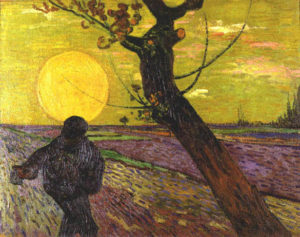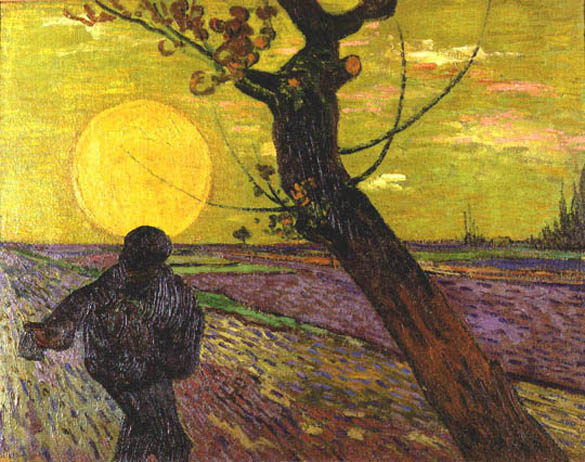Reflections on matriarchs and mothers
We are born of love; Love is our mother.
— Rumi
To My Mother (excerpt) — Edgar Allan Poe
Because I feel that, in the Heavens above,
The angels, whispering to one another,
Can find, among their burning terms of love,
None so devotional as that of “Mother,”
Therefore by that dear name I long have called you—
You who are more than mother unto me,
And fill my heart of hearts …
What’s Going On? (song excerpt)—
Alfred W Cleveland / Marvin P Gaye / Renaldo Benson
link to music video Mother, mother
There’s too many of you crying
Brother, brother, brother
There’s far too many of you dying
You know we’ve got to find a way
To bring some lovin’ here today, eheh …
For only love can conquer hate
You know we’ve got to find a way
To bring some lovin’ here today, oh oh oh … Mother, mother, everybody thinks we’re wrong
Oh, but who are they to judge us
… Oh, you know we’ve got to find a way
To bring some understanding here today, Oh oh oh
- Mother Goose: link to information.
- Divine Feminine: article in HuffingtonPost by Joan Chittister
Of Mothers & Matriarchs
Mother is the name for God in the lips and hearts of little children. — William Makepeace Thackeray
The chain connecting mother to daughter was broken and the world passed to the keeping of men, who had no way of knowing. ― Anita Diamant
… give them to all the people who helped mother our children. … I don’t want something special. I want something beautifully plain. Like everything else, it can fill me only if it is ordinary and available to all. — Anne Lamott
Our images of God, then, must be inclusive because God is not mother, no, but God is not father either. God is neither male nor female. God is pure spirit, pure being, pure life — both of them. Male and female, in us all. — Joan Chittister
We are braver and wiser because they existed, those strong women and strong men… We are who we are because they were who they were. It’s wise to know where you come from, who called your name. — Maya Angelou
Motherhood: All love begins and ends there. — Robert Browning
Mama was my greatest teacher, a teacher of compassion, love and fearlessness. If love is sweet as a flower, then my mother is that sweet flower of love. — Stevie Wonder
The love of a mother is the veil of a softer light between the heart and the heavenly Father. — Samuel Taylor Coleridge
A mother’s happiness is like a beacon, lighting up the future but reflected also on the past in the guise of fond memories. – Honore de Balzac
I remember my mother’s prayers and they have always followed me. They have clung to me all my life. — Abraham Lincoln
Life began with waking up and loving my mother’s face. — George Eliot
For when a child is born the mother also is born again.— Gilbert Parker
With what price we pay for the glory of motherhood. — Isadora Duncan
My dear Mama, you are definitely the hen who hatched a famous duck. — Henri de Toulouse-Lautrec
It may be possible to gild pure gold, but who can make his mother more beautiful? — Mahatma Gandhi
God could not be everywhere, and therefore he made mothers. — Rudyard Kipling
Mother and Child — Louise Glück
We’re all dreamers; we don’t know who we are.
Some machine made us; machine of the world, the constricting family.
Then back to the world, polished by soft whips.
We dream; we don’t remember.
Machine of the family: dark fur, forests of the mother’s body.
Machine of the mother: white city inside her.
And before that: earth and water.
Moss between rocks, pieces of leaves and grass.
And before, cells in a great darkness.
And before that, the veiled world.
This is why you were born: to silence me.
Cells of my mother and father, it is your turn
to be pivotal, to be the masterpiece.
I improvised; I never remembered.
Now it’s your turn to be driven;
you’re the one who demands to know:
Why do I suffer? Why am I ignorant?
Cells in a great darkness. Some machine made us;
it is your turn to address it, to go back asking
what am I for? What am I for?
God as Creator: Source Code of Grace (excerpt from longer sermon)— Nadia Bolz-Weber
In the beginning, all there was, was God. So in order to bring the world into being, God had to kind of scoot over. So God chose to take up less space—you know, to make room. So before God spoke the world into being, God scooted over. God wanted to share. Like the kind-faced woman on the subway who takes her handbag onto her lap so that there’s room for you to sit next to her. She didn’t have to do it, but that’s just who she is . . . the kind-faced subway lady’s nature is that she makes room for others.
Then God had an absolute explosion of creativity and made animals. Amoebas. Chickens. Crickets. Bees. Orangutans.
Then God said, “Let us create humans in our own image and likeness.” Let us. So, God the community, God the family, God the friend group, God the opposite of isolation, said, “Let us create humanity in our image and likeness. Let there be us and them in one being.”
So God created every one of us in the male and female image of God. Then God gave us God’s own image —something so holy that it could never be harmed, and never be taken away. A never-aloneness. An origin and destination. A source code of grace.
Meditations on themes from the Parable of the Sower & the Seed
Reflections on hard earth and fertile ground: sowing seeds, putting down roots, growing shoots … putting parables to work in current times.

The Sower by VanGogh
A Short Story of Falling — Alice Oswald
It is the story of the falling rain
to turn into a leaf and fall again
it is the secret of a summer shower
to steal the light and hide it in a flower
and every flower a tiny tributary
that from the ground flows green and momentary
is one of water’s wishes and this tale
hangs in a seed-head smaller than my thumbnail
if only I a passerby could pass
as clear as water through a plume of grass
to find the sunlight hidden at the tip
turning to seed a kind of lifting rain drip
then I might know like water how to balance
the weight of hope against the light of patience
water which is so raw so earthy-strong
and lurks in cast-iron tanks and leaks along
drawn under gravity towards my tongue
to cool and fill the pipe-work of this song
which is the story of the falling rain
that rises to the light and falls again
On Parables & Seeds
Not every end is the goal. The end of a melody is not its goal, and yet if a melody has not reached its end, it has not reached its goal. A parable. — Frederick Nietzsche
To paraphrase Muggeridge: Everything is a parable that God is speaking to us, the art of life is to get the message. ― Chester Elijah Branch
Each day of my life I am sowing seeds that one day I will harvest. — Gautama Buddha
Don’t judge each day by the harvest you reap but by the seeds that you plant. — Robert Louis Stevenson
A lower power cannot compass the full understanding of a higher. But to limit one’s belief to the bounds of one’s own small powers, would be to tie oneself down to the foot of a tree, and deny the existence of its upper branches. ― Mrs. Alfred Gatty, ie, Margaret Scott
Every problem has in it the seeds of its own solution. — Norman Vincent Peale
If you can look into the seeds of time, and say which grain will grow and which will not, speak then unto me. — William Shakespeare
Being an American is a state of mind, and to be in a family is to feel the power of belonging, the power of your roots. Family is a tree, the strength of a tree, the roots, the leaves, the past, the present, the future, the fruits, the seeds. — Esai Morales
He [Jesus] speaks in parables, and though we have approached these parables reverentially all these many years and have heard them expounded as grave and reverent vehicles of holy truth, I suspect that many if not all of them were originally not grave at all but were antic, comic, often more than just a little shocking. ― Frederick Buechner, Telling the Truth: The Gospel as Tragedy, Comedy, and Fairy Tale
Throughout the parables the paradoxical teachings continue: Give to receive. Die to live. Lose to win. ― Amos Smith, Healing the Divide: Recovering Christianity’s Mystic Roots
Maybe that’s why Jesus was so fond of parables: Nothing describes the indescribable like a good yarn. ― Cathleen Falsani, Sin Boldly: A Field Guide for Grace
A journey or pilgrimage also follows the parabolic curve of an arch: it swings out from a known point and returns symmetrically to a point on the same line or plane, but farther along. For this reason, ancient philosophers chose the arch as a symbol for the process of interpretation. That is why teaching stories, such as those of Jesus or Buddha, are known as parables. ― John Tallmadge, The Cincinnati Arch: Learning from Nature in the City
A Parable — Arthur Conan Doyle
The cheese-mites asked how the cheese got there,
And warmly debated the matter;
The Orthodox said that it came from the air,
And the Heretics said from the platter.
They argued it long and they argued it strong,
And I hear they are arguing now;
But of all the choice spirits who lived in the cheese,
Not one of them thought of a cow.
Parable of the Hostages — Louise Glück
The Greeks are sitting on the beach
wondering what to do when the war ends. No one
wants to go home, back
to that bony island; everyone wants a little more
of what there is in Troy, more
life on the edge, that sense of every day as being
packed with surprises. But how to explain this
to the ones at home to whom
fighting a war is a plausible
excuse for absence, whereas
exploring one’s capacity for diversion
is not. Well, this can be faced
later; these
are men of action, ready to leave
insight to the women and children.
Thinking things over in the hot sun, pleased
by a new strength in their forearms, which seem
more golden than they did at home, some
begin to miss their families a little,
to miss their wives, to want to see
if the war has aged them. And a few grow
slightly uneasy: what if war
is just a male version of dressing up,
a game devised to avoid
profound spiritual questions? Ah,
but it wasn’t only the war. The world had begun
calling them, an opera beginning with the war’s
loud chords and ending with the floating aria of the sirens.
There on the beach, discussing the various
timetables for getting home, no one believed
it could take ten years to get back to Ithaca;
no one foresaw that decade of insoluble dilemmas—oh unanswerable
affliction of the human heart: how to divide
the world’s beauty into acceptable
and unacceptable loves! On the shores of Troy,
how could the Greeks know
they were hostages already: who once
delays the journey is
already enthralled; how could they know
that of their small number
some would be held forever by the dreams of pleasure,
some by sleep, some by music?

